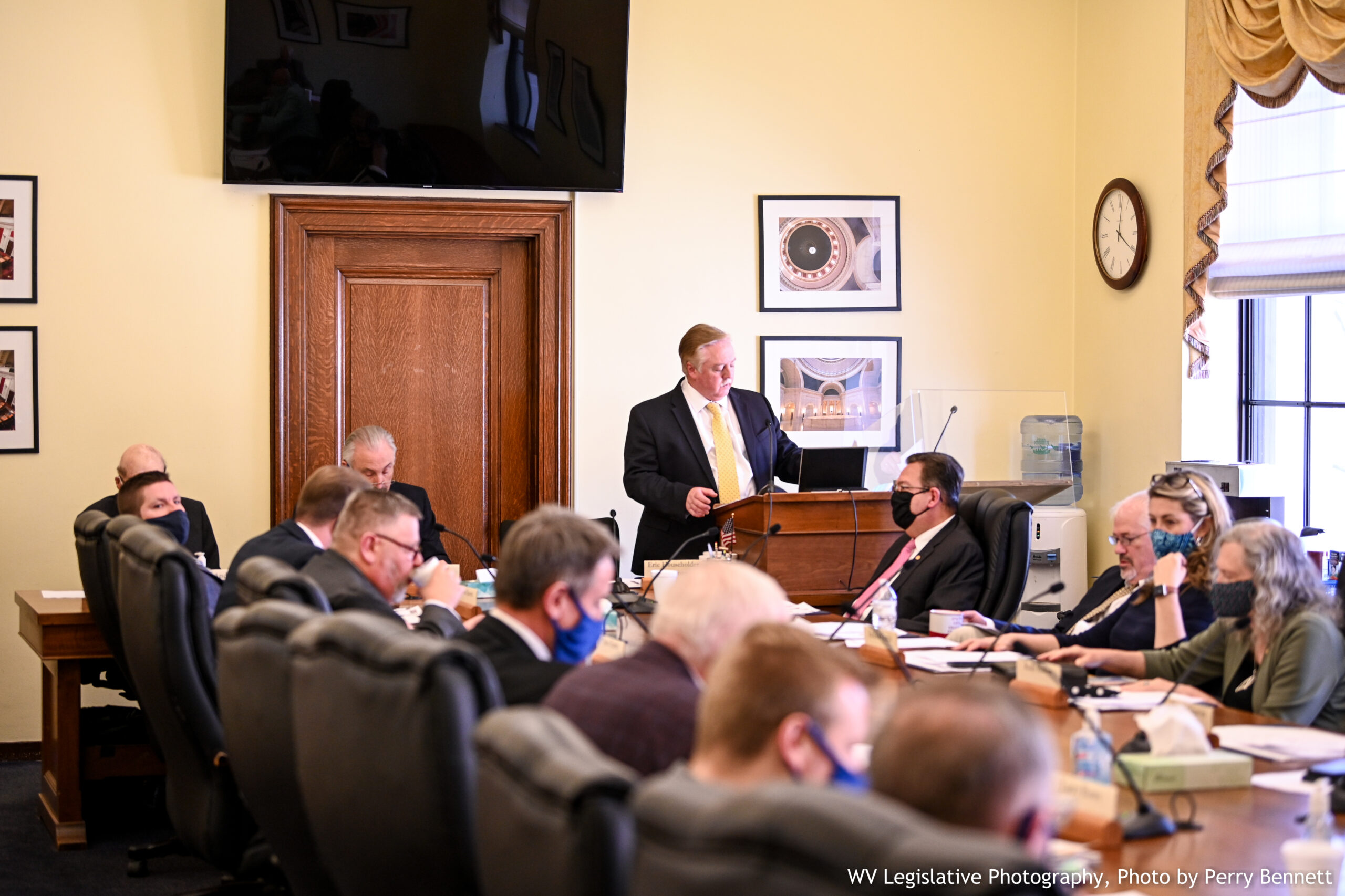MORGANTOWN – An intermediate court of appeals may be closer to becoming a reality than it’s ever been.
The House of Delegates Finance Committee made some technical tweaks to the pared-down version of SB 275 passed out if House Judiciary earlier this month and approved it in a divided voice vote, sending it to the House floor.
The Senate has passed an intermediate court bill for several years but it’s never cleared the House. Bills is 2018 and 2019 died in House Judiciary. The 2020 version, also SB 275, died on the House floor in a 44-56 vote.
On March 9, House Judiciary passed out a smaller, cheaper version of the court, which Finance approved Wednesday.
Judiciary trimmed the two-district, six-judge court to three judges covering the whole state. The judges’ 12-year terms were cut to 10. They would be initially appointed by the governor to start work on July 1, 2022. Then they would be elected to staggered terms in 2024, 2026 and 2028.
The court is not designed to hear criminal case appeals but the House version gives the Supreme Court the discretion to take over that duty.
Intermediate court judges, unlike other state judges, would not be permitted run for another judicial seat – Supreme Court for instance – while in office.
The Senate version put the court’s startup cost at about $7.9 million with annual cost thereafter of about $5.7 million. The House changes trim the startup cost to $3.6 million, with annual cost thereafter of $2.1 million.
Even scaled down, the bill has opponents who say that the Supreme Court’s diminished caseload and its current system of issuing a decision in every case (at one time it turned most cases away) makes the intermediate court unnecessary.
Delegate Larry Rowe, D-Kanawha, said, “This is really a bad idea. This is creating a new state bureaucracy.” It will double the appeal time for civil cases channeled through it and cost a lot of money. “There’s no hue and cry that we’re doing a bad job in West Virginia with our court system.”
Under the new intermediate court structure, the Workers Compensation Office of Judges, which handles workers’ compensation cases, would stop hearing cases and be terminated by September 2022; all appeals would then go directly to the workers’ compensation Board of Review and then appealed from there to the intermediate court.
The intermediate court would also handle appeals from family court; circuit court civil, guardianship and conservator cases; agency orders; and Health Care Authority certificate of need orders.
The state Supreme Court would be the next and final level of appeal. The Supreme Court would have the discretion to review or turn away intermediate court appeals.
Tweet David Beard@dbeardtdp Email dbeard@dominionpost.com




